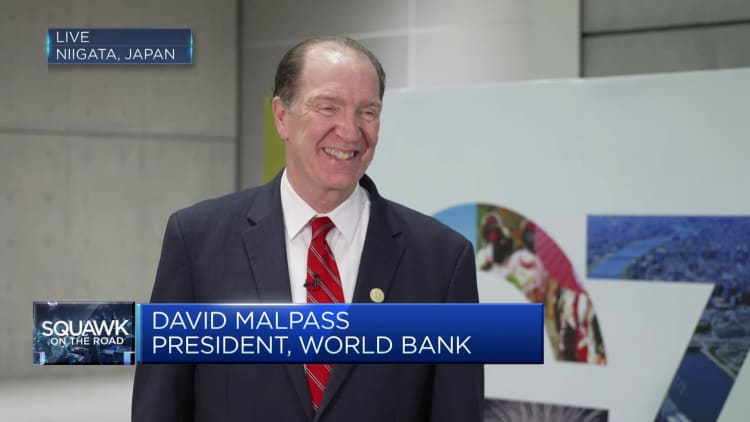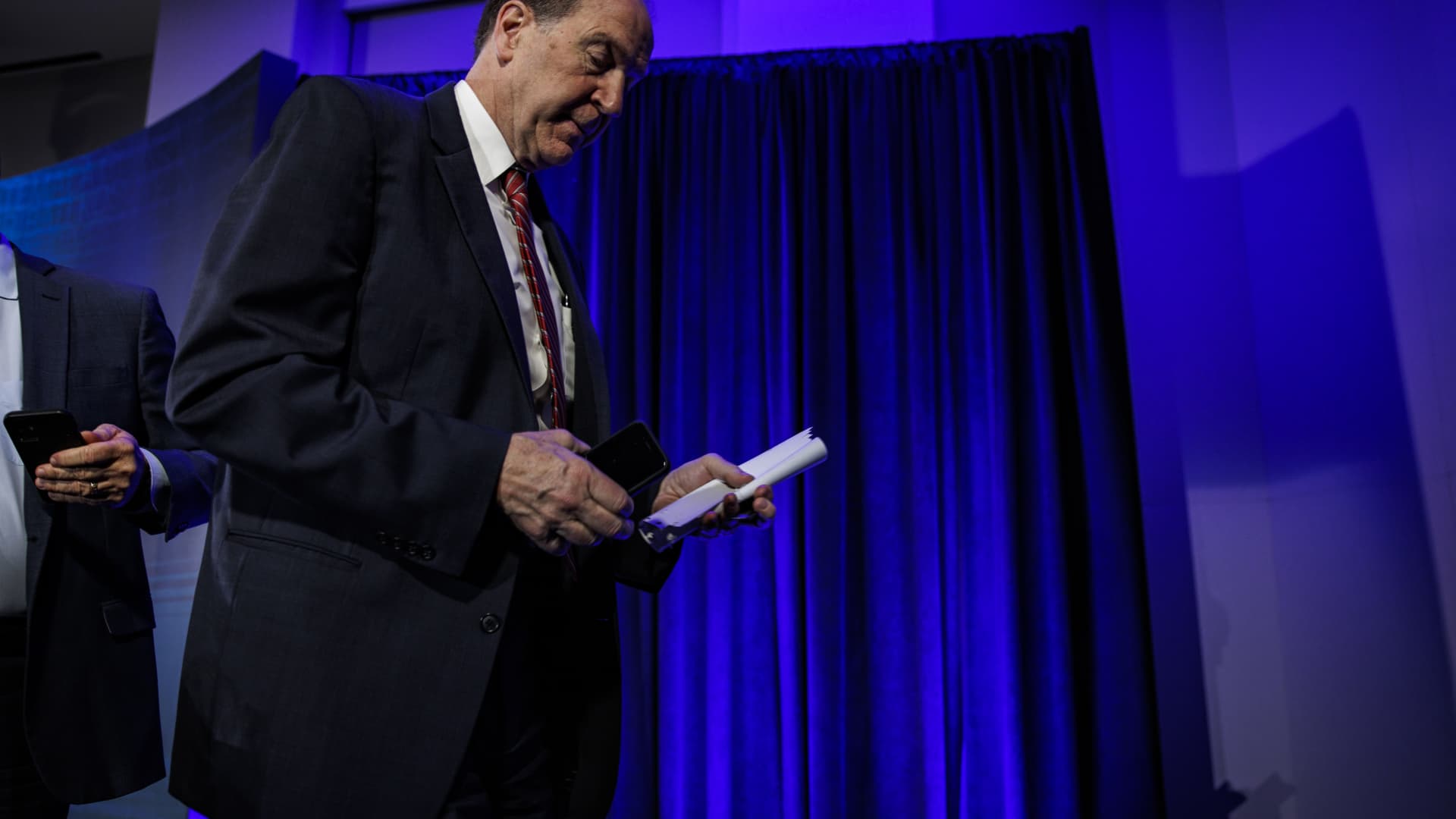World Bank Group President David Malpass April 13, 2023 in Washington, DC
Bloomberg | Bloomberg | Getty Images
World Bank President David Malpass said advanced economies around the world are facing debt problems that are exacerbating other problems in the global economy as central banks continue to grapple with persistent inflation.
Speaking to CNBC’s James Soong at the Group of Seven finance ministers and central bank governors’ meeting in Japan, Malpass stressed the need to address record global debt levels for stability.
“Debt-to-GDP ratios in advanced economies are higher than ever before,” he said, adding that developing countries face similar problems. “That means the economy has to work harder to repay the money it has borrowed.”
The World Bank has highlighted the need for greater transparency in addressing rising debt in the face of a host of global economic problems, including banking stress and sticky inflation.
The organization hosted last month Global Sovereign Debt Roundtable in Washington, D.C., and highlighted its call for information sharing to speed up the world’s debt restructuring process.

In its year-end report released in December, the World Bank said that the total external debt of low- and middle-income countries rose by 5.6% in nominal terms to reach $9 trillion.
For all countries, International Finance Institute It was estimated earlier this year that the nominal value of global debt has declined slightly from 2020 levels and will be below $300 trillion in 2022.
“One of the things in the advanced economies is trying to find an environment that’s as stable as the environment so that growth can come back, and that’s really important in the world right now,” Malpass told CNBC.
“Risk-free rates have risen in advanced economies, but credit spreads have also widened in developing countries,” he said.
The risk-free rate of return represents the rate of interest an investor can expect to earn from an investment with zero risk.
“They (investors) will always go to the safest advanced economies first, so what’s left is what can go to developing countries, and that’s not enough,” Malpass said, adding that less developed economies face The “double whammy” increases the cost of the debt burden, not the opportunity to roll it over. “
Asked about his plans when he leaves office in June – well before his term expires in April 2024 – he said he was “exploring options”.
“We at the bank have been busy with the really important things – this debt, the growth plans, we’re in the final quarter of the financial year,” he said.


